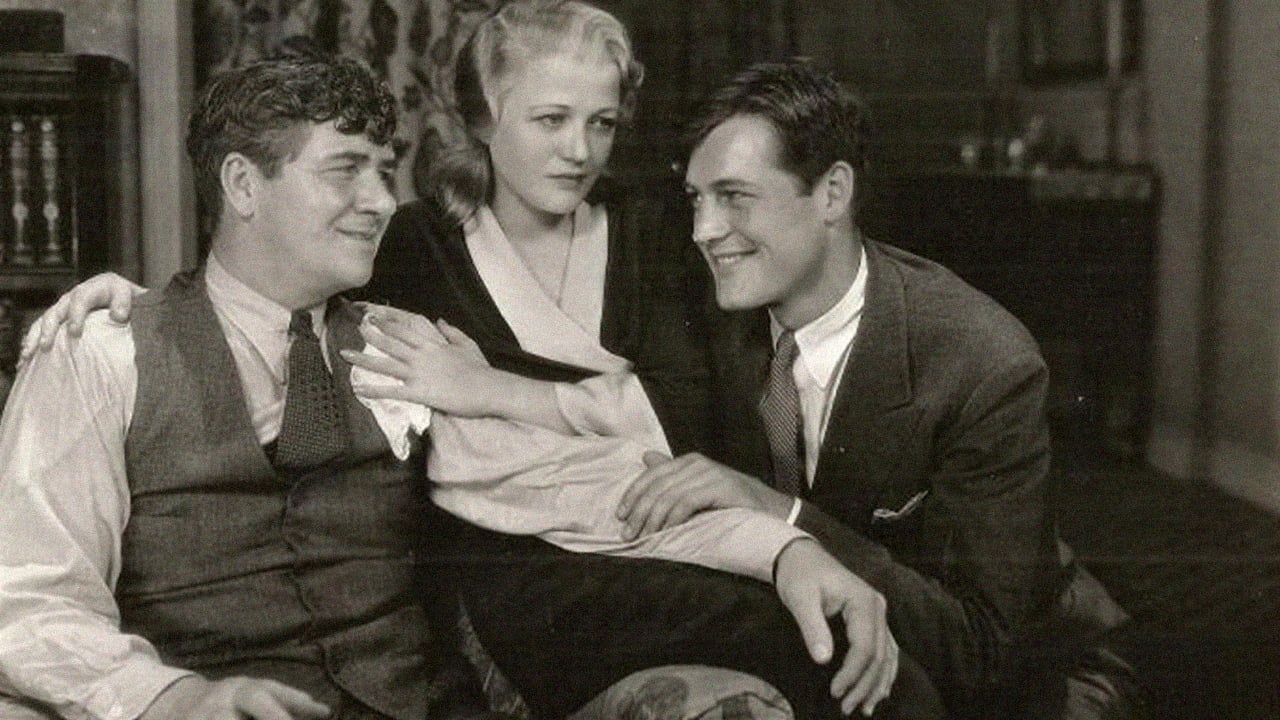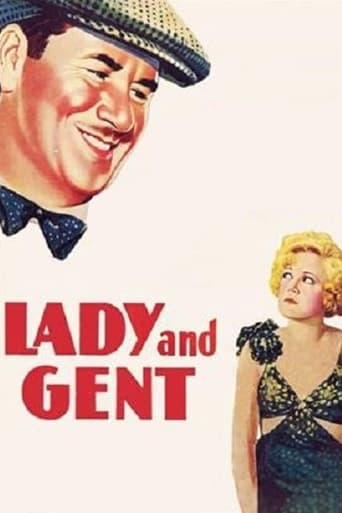Limerculer
A waste of 90 minutes of my life
Ella-May O'Brien
Each character in this movie — down to the smallest one — is an individual rather than a type, prone to spontaneous changes of mood and sometimes amusing outbursts of pettiness or ill humor.
Catherina
If you're interested in the topic at hand, you should just watch it and judge yourself because the reviews have gone very biased by people that didn't even watch it and just hate (or love) the creator. I liked it, it was well written, narrated, and directed and it was about a topic that interests me.
Fulke
Great example of an old-fashioned, pure-at-heart escapist event movie that doesn't pretend to be anything that it's not and has boat loads of fun being its own ludicrous self.
mark.waltz
Do you ever have a recollection of having seen an old movie before, yet you know that it couldn't be the one you're thinking that about? That happened with me, and I thought, "This reminds me of a Helen Twelvetrees movie." Sure enough, I found that movie after researching it, and discovered by researching the writer of "Lady and Gent" the title I suspected it to be, 1939's "Unmarried". We complain that there are too many remakes or sequels today, but the golden age was filled with them as well. The first half of both films deals with the long lasting night life of two unromantically involved old pals (here George Bancroft and Wynne Gibson; in the remake Robert Armstrong and Twevetrees) whose antics in the world of nightclubs and prizefighting lead to the death of an old pal and their reluctant adoption of his son. From there, it goes from salty to sappy, although the foster parents never learn proper etiquette. As the kid grows older, they find that they aren't proper enough for his promising future. This is at its best in the first 40 minutes where Bancroft and Gibson lead lives as morally imperfect Broadway babies. She's a Texas Guinan like hostess, and he's boxing the Duke, John Wayne that is in one of his first films. Gibson is the better of the two leads, although Bancroft gets top billing. James Gleason plays the unfortunate father, while Billy Butts grows up to be Charles Starrett. The original film is better because of its no nonsense pre- code approach. But they are both rather standard, even if it is Gibson and later Twelvetrees who get the acting honors in both films.
MartinHafer
In this unusual Pre-Code film, Slag Bailey (George Bancroft) and Puff (Wynne Gibson) aren't exactly high class folks. Slag is a boxer and Puff is a lounge singer. As for Slag, his career in the boxing ring falls apart when he is overconfident and beaten by a young guy (John Wayne in one of his earliest roles). At about the same time, Slag's beloved manager (James Gleason) is killed...and only a short time later, the manager's son shows up! Instead of sending the boy to an orphanage or giving him to the police, he and Puff decide to pretend to be husband and wife and raise the boy. Puff agrees to do this for a year...which stretches into several years...which stretches to getting the boy into college.There's not a lot of plot other than that. This is NOT a bad thing, as instead it's an excellent character study about two folks who sacrifice themselves and do good by the boy. Good acting and an interesting script make this an odd but entertaining flick.So how exactly does this fit Pre-Code sensibilities? Well, no one knows it but Puff and Slag live as husband and wife and only get around to marrying after more than a decade of cohabitation! This is something you NEVER could have seen in the post 1934 Post-Code films...no way!
bkoganbing
Lady And Gent casts George Bancroft and Wynne Gibson as a prizefighter and his girl. If this were made over at MGM and given an A budget, the roles of Bancroft and Gibson would have been played by Wallace Beery and Jean Harlow.Bancroft is at the end of his career and he shows it by getting beat by a young up and coming heavyweight played by John Wayne. Later on James Gleason who is Bancroft's manager and who had bet the losing end of Bancroft's purse is shot during a robbery.What Bancroft and Gibson don't know is that Gleason left behind a son who is now an orphan. Both of them take in young Billy Butts who later grows up to be Charles Starrett. One thing they forget to do is get married, though they live together as man and wife. That's because Gibson wants a quick exit in case Broadway calls.Sad to say, but Gibson gets stuck in the small town they live in and she pines away for the life she could have had. Much like James Stewart in It's A Wonderful Life. She's the best one in this film, I might easily say this is her career role.John Wayne makes one of his few appearances in a film that isn't a John Wayne film and he's playing a character role. We see him first as the up and coming heavyweight who knocks out Bancroft and then years later as a punch drunk has been embarking on a criminal career. He's pointed out as a classic example of what not to do with your life when Starrett thinks he ought to try the fight game. Wayne is very good in the part, though his legion of fans will think this a most unusual part for him.This B picture from Paramount even got an Oscar nomination for best original story and ironically lost that year to MGM and The Champ, another story about a prizefighter. This film also was John Wayne's debut at Paramount Pictures where he would later star in Reap The Wild Wind, Shepherd Of The Hills, The Man Who Shot Liberty Valance and El Dorado among others. But that was all way further down the road.Having Bancroft and Gibson living without benefit of clergy is what made this film not be seen for many years once The Code came into place. I consider myself lucky to see it and hope TCM broadcasts this one very soon.

